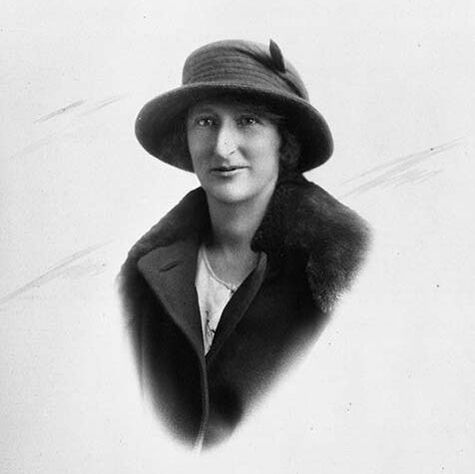History Corner: The Esther Glen Award and Six Little New Zealanders
|
Annual awards for the country’s top children’s books have been a key feature of New Zealand’s literary scene since 1945, and the New Zealand Library Association, now LIANZA, was there right from the start. has been there right from the start. Named in memory of children’s author and journalist Alice Esther Glen, LIANZA’s Esther Glen Award (or the Wright Family Esther Glen Award for Junior Fiction, as it’s now known) is awarded for the most distinguished contribution to New Zealand literature for junior fiction.
Alice Esther Glen grew up part of a big family in Christchurch and won her first major writing competition aged eleven. As an adult working in Australia, she encountered the flourishing Australian children’s literary scene and was inspired to write a story that drew on her own experiences of a Kiwi childhood. Taking Ethel Turner’s classic Seven Little Australians as a starting point, she wrote her own novel for children, Six Little New Zealanders. Published during the first World War, Six Little New Zealanders was New Zealand’s first novel aimed squarely at children. The book follows the adventures of the six Malcolm siblings, a family of city kids who spend a summer on the Canterbury sheep station run by their three uncles. Six Little New Zealanders paints an idyllic picture of a rural Kiwi childhood, as Ngarie Malcolm and her siblings adapt to country life and get into plenty of rural misadventures. |
Esther Glen published three more books for children over her career, including a sequel to Six Little New Zealanders. However, she was better-known during the 1920s and 30s under the moniker ‘Lady Gay’ – as editor of the children’s pages of Christchurch’s newspapers. In that role, she encouraged children to send in their own short stories and poems for publication. She also set up clubs and matched up pen pals to help children on isolated farms make friends, organised for her young fans to do charity work during the Great Depression, and wrote some of New Zealand’s first radio plays aimed at children.
Five years after Esther’s death in 1940, the first Esther Glen medal was presented by the NZLA to Stella Morice, for The Book of Wiremu. Later winners include Margaret Mahy, who has taken out the award a record six times; Tessa Duder, who has won three times with books from her Alex series; and Bren MacDibble, who won last year’s award for How to Bee. The presentation of the award reflects the ups and downs of New Zealand’s children’s literary scene; presentation of the award regularly took a break if that year’s crop of children’s books wasn’t up to scratch, but it’s encouraging to see it’s been awarded every year since 2001.
Six Little New Zealanders is recognised as one of the earliest examples of New Zealand literature aimed at children, and it’s for this reason that the New Zealand Library Association chose to name the country’s first children’s literature award in Esther Glen’s honour. It’s fitting that today, this major award still celebrates the legacy of this Kiwi literary pioneer.
Five years after Esther’s death in 1940, the first Esther Glen medal was presented by the NZLA to Stella Morice, for The Book of Wiremu. Later winners include Margaret Mahy, who has taken out the award a record six times; Tessa Duder, who has won three times with books from her Alex series; and Bren MacDibble, who won last year’s award for How to Bee. The presentation of the award reflects the ups and downs of New Zealand’s children’s literary scene; presentation of the award regularly took a break if that year’s crop of children’s books wasn’t up to scratch, but it’s encouraging to see it’s been awarded every year since 2001.
Six Little New Zealanders is recognised as one of the earliest examples of New Zealand literature aimed at children, and it’s for this reason that the New Zealand Library Association chose to name the country’s first children’s literature award in Esther Glen’s honour. It’s fitting that today, this major award still celebrates the legacy of this Kiwi literary pioneer.
Did you know that you can access a digital version of LIANZA’s history: A Century of Library Life in Aotearoa, Te Rau Herenga, thanks to the National Library?


